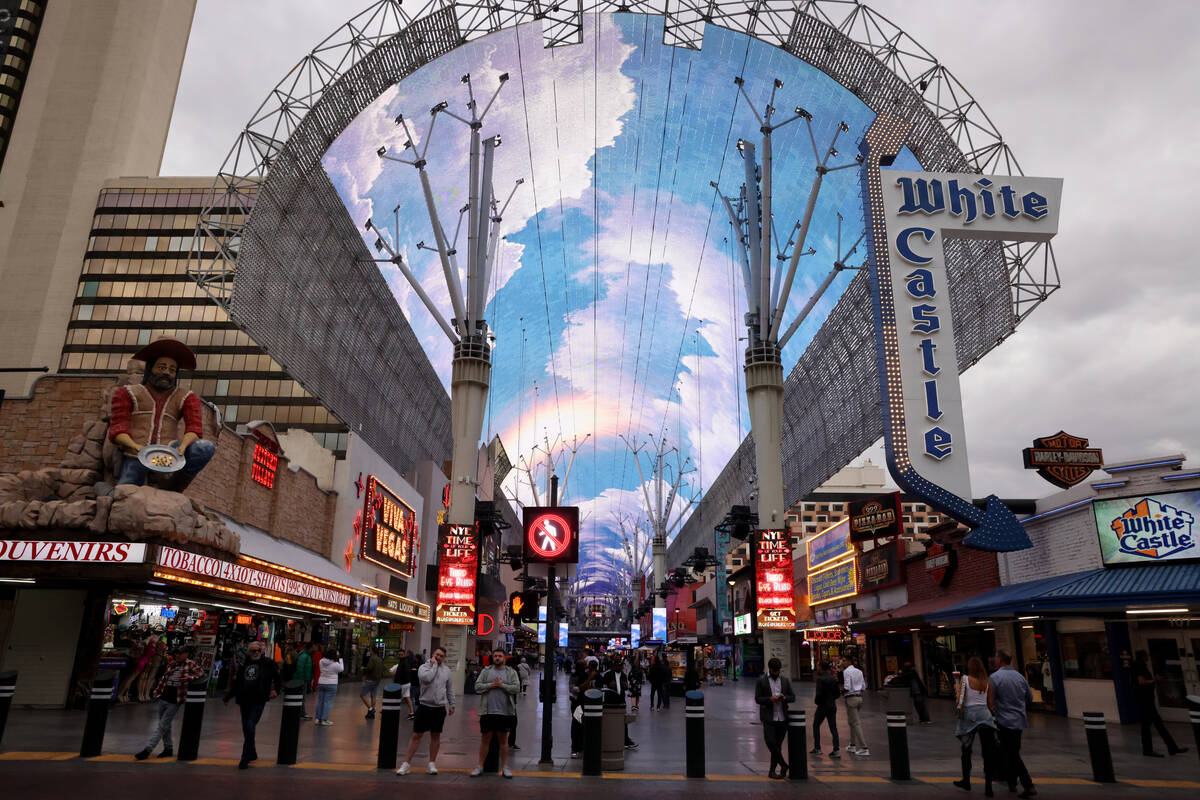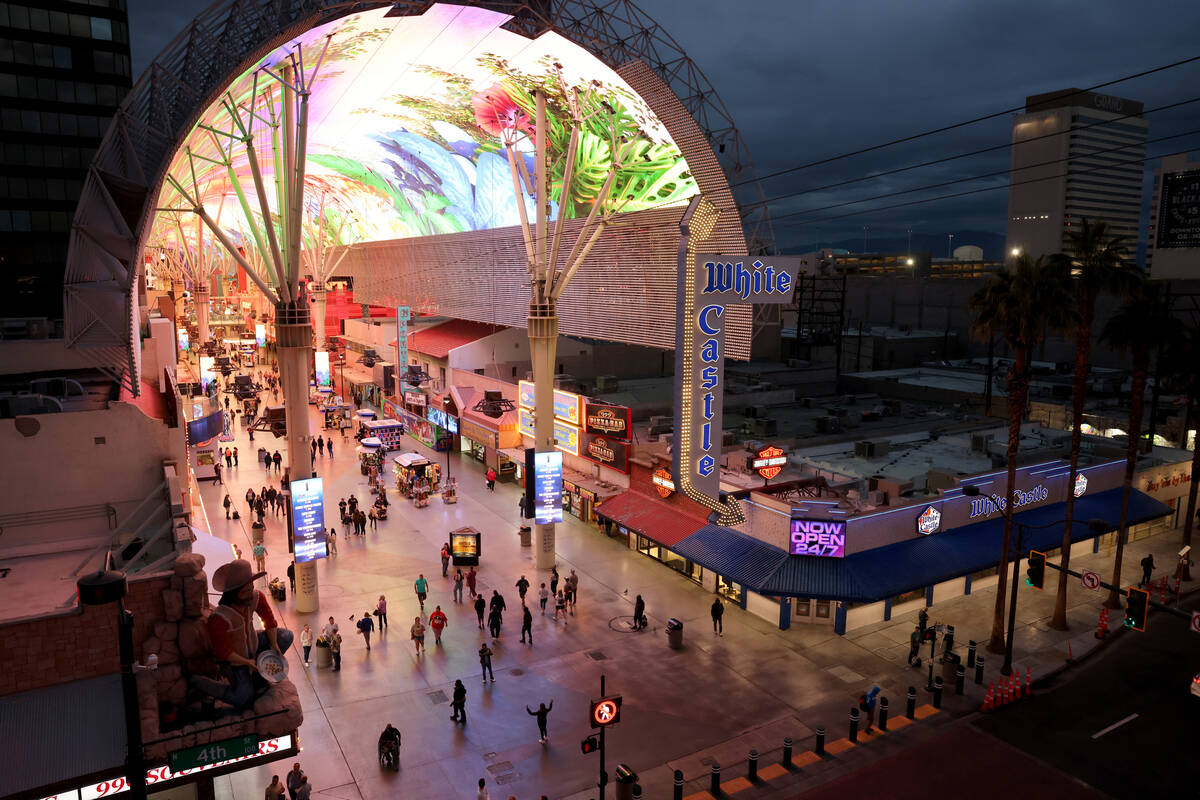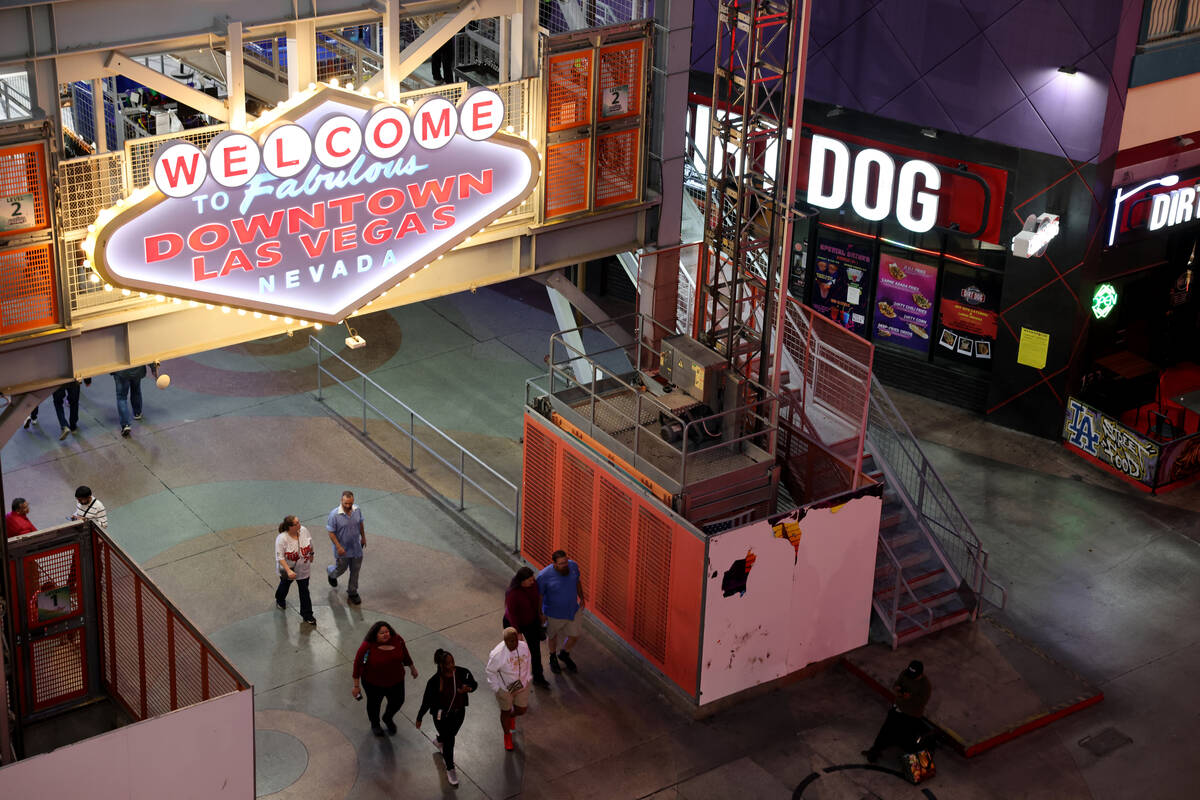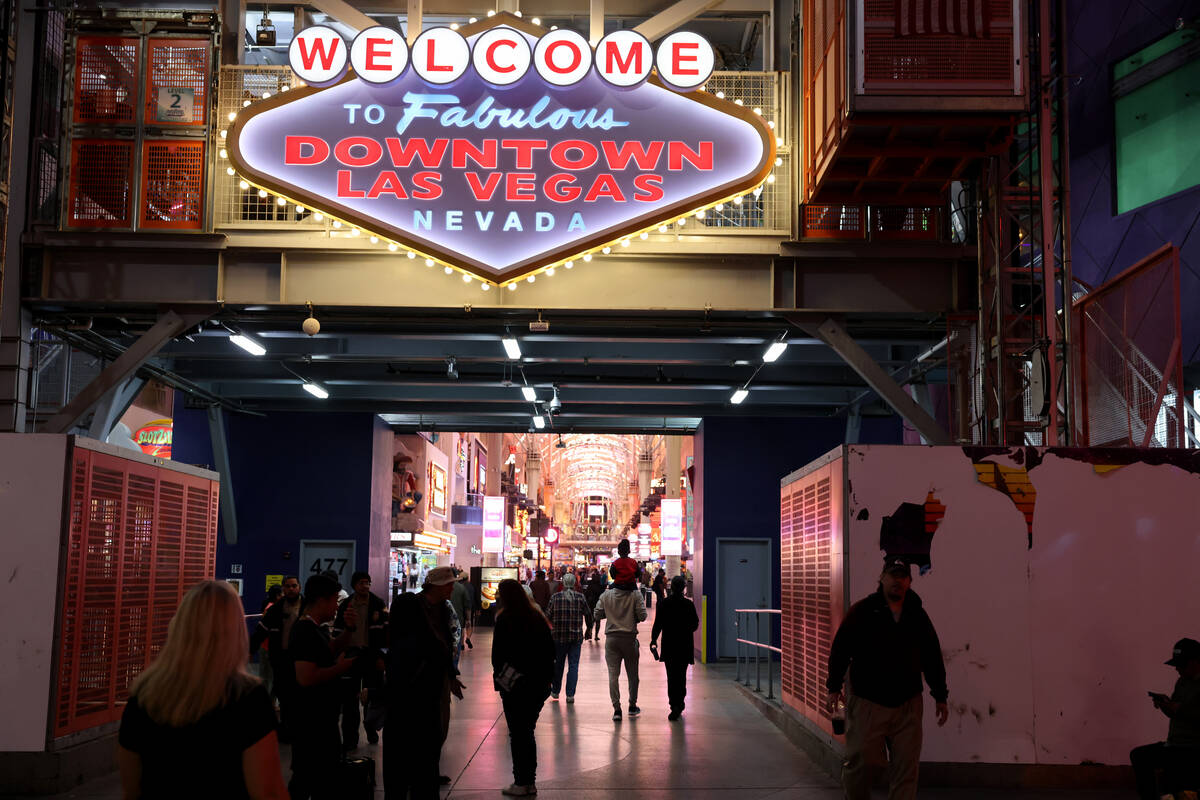‘Order out corridor’ coming to downtown Las Vegas
The city of Las Vegas approved an “order out corridor” for the downtown tourist district that could ban convicted misdemeanor offenders from the area with a court order.
Under the ordinance, passed unanimously Wednesday by the City Council, Municipal Court judges can issue the order to people convicted of crimes committed within the corridor in lieu of jail sentences, for up to a year.
Judges can make exceptions for people who live in or go into the area for essential needs, although they would have to carry a document to prove their waiver.
Metropolitan Police Department officers and city marshals, who patrol the area, say the ordinance is another tool to keep “chronic offenders” from committing additional crimes within 211 acres in downtown.
The corridor includes 144 acres between Stewart and Bridger Avenues and Main and Eighth streets, and another 67 acres surrounding the Strat.
Lawsuit likely
The ordinance takes effect Sunday, while the American Civil Liberties Union of Nevada warned that a lawsuit challenging its constitutionality was imminent.
With Councilwoman Victoria Seaman being absent, the City Council voted 6-0 to approve the ordinance.
“Your proposal is not only unconstitutionally overbroad, it will likely result in unconstitutional profiling as well as serious violations of the first and 14th amendments,” ACLU attorney Tatiana Smith told the council. “It is baffling that the City Council would want to pass this bill now, considering that the Nevada Supreme Court might soon strike down a very similar ordinance.”
She was referring to a pending case that challenges Clark County’s own order-out corridor approved for the Strip last year.
Las Vegas police say that ordinance has been a success, and Mayor Carolyn Goodman, who spearheaded the city’s efforts, cited that as a reason to replicate it in the city.
‘Lazy approach’
The ACLU alleges the ordinance would unjustly target people experiencing homelessness, street performers and protesters, and would be used as an excuse to “conduct stop-and-frisk searches.”
“This order out provision only shifts the people the city has decided are ‘undesirable,’ especially people who are experiencing homelessness, from commercial areas downtown into residential neighborhoods or jails,” wrote Athar Haseebullah, executive director of the civil rights organization, in a statement. “It’s a lazy approach typical of government and ignores the constitutional safeguards used to protect people’s rights.”
Representatives of the downtown resort industry spoke in support of the ordinance.
Andrew Simon, president and CEO of the Fremont Street Experience, said that he sees the same people committing the same crimes in the tourist corridor.
“There’s nothing more important than this order out, really, to make this a place that tourism is the No. 1 priority,” he told the council.
The council rejected amendments that would have expanded the corridor to surrounding problem areas, although they said they could make additional determinations depending on how efficient the current ordinance is the next six months.
In a presentation, City Attorney Jeff Dorocak said that the county’s much larger corridor, encompassing 2800 acres on the Strip and surrounding areas, has been a success, yielding decreases in calls for service between 18 and 27 percent.
Las Vegas police have cited or arrested an average of 100 people who violated the order each of the last six months, he added.
“What we would like to do is see the consistency with our tourist corridor in the city mirror that that we have in the county,” Metropolitan Police Department Capt. Brandon Oris told the council. “It’s been a great tool for us there, and we anticipate it being a great tool for us here.”
Contact Ricardo Torres-Cortez at rtorres@reviewjournal.com. Follow @rickytwrites on X.
































